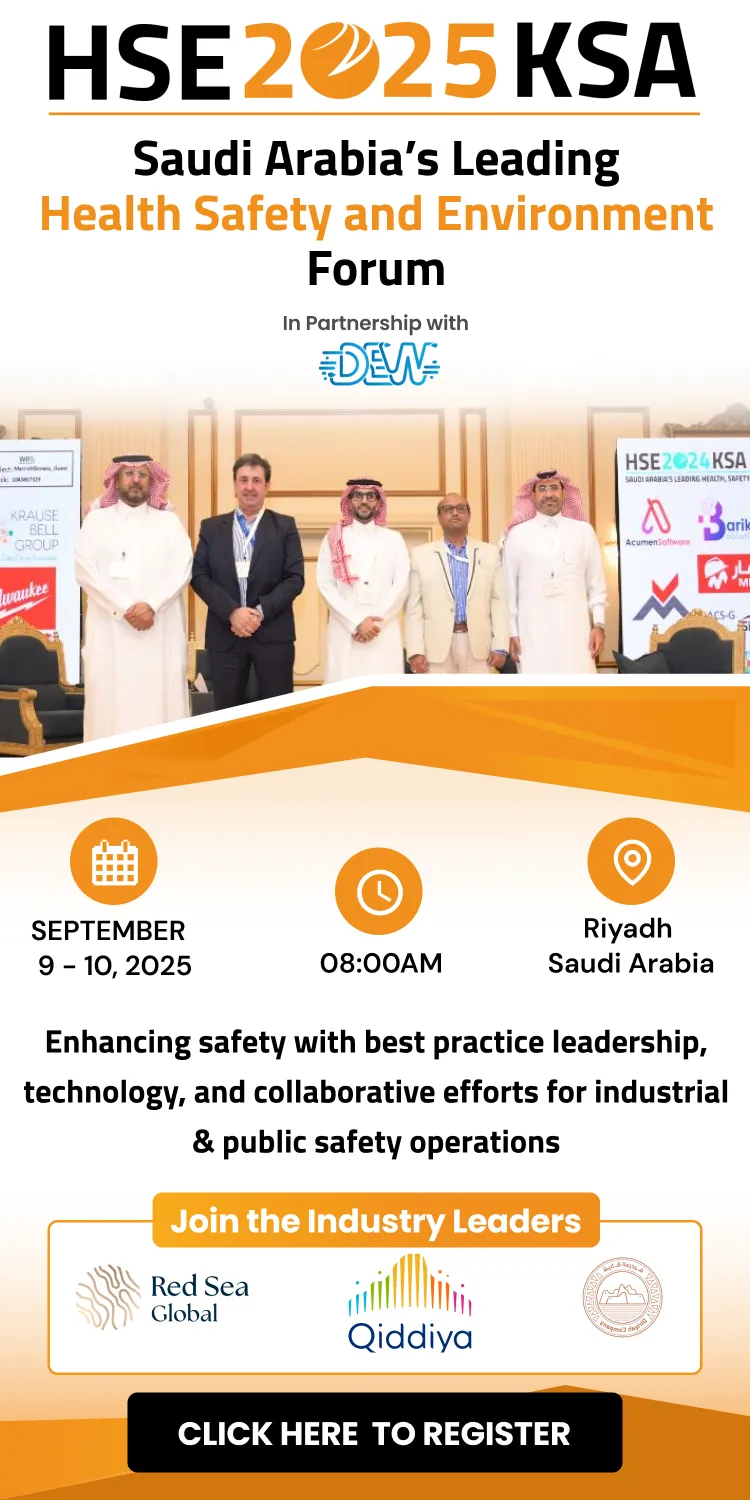
Mohamed Amer, regional director of Operations at ICC MENA. (Image source: ICC MENA)
On 22 May, the International Code Council (ICC) marked the first-ever International Building Safety Day.
The organisation stated that this day is dedicated to promoting and celebrating building safety and the benefits it provides to our communities' health and welfare. It also recognises the significant progress made in ensuring the safety of our built environment, while acknowledging the challenges that remain and planning for the future.
Middle East's commitment to building safety
The Middle East has seen a rapid construction boom in recent years, transforming skylines and infrastructure across the region. Alongside this growth, a focus on building safety has emerged as a critical priority. Many countries have adopted stricter building codes, established dedicated building safety authorities, and invested in fire and structural safety provisions and awareness campaigns.
Dubai has established itself as a frontrunner in building safety with its comprehensive Dubai Building Code (DBC), referencing international standards from the ICC. The DBC is regularly updated to ensure its regulations reflect the latest advancements in construction practices and safety protocols.
Saudi Arabia is also making significant strides in building safety, utilising the I-Codes as the base of their codes. This approach ensures safety while adapting regulations to specific needs, upholding global safety benchmarks.
Oman is poised to join the ranks of regional safety leaders. Partnering with the ICC, Oman is developing a set of six building codes expected to be finalised by early 2026. These codes will be based on the latest international codes (I-Codes), ensuring Oman's building industry adheres to the most up-to-date safety practices. The focus on sustainability and technology integration further strengthens Oman’s commitment to a safe and future-proof construction sector.
These initiatives by Dubai, Saudi Arabia, and Oman demonstrate a collective commitment to building safety in the Middle East. Improved regulations and enforcement have led to a decrease in construction-related accidents and building collapses. Advancements in fire safety measures, particularly in high-rise buildings, have also contributed to a safer living and working environment.
Building resilience for the future
The Middle East faces unique challenges in building safety due to extreme temperatures, high levels of sun exposure, and frequent sandstorms. Daily temperature fluctuations can significantly impact the storage and lifespan of building materials, such as adhesives, paints, and sealants. Highly heat-resistant materials are essential to reduce heat gain and loss. Additionally, all pipes—water, gas, sewage—require increased insulation to counter extreme temperature variations, preventing warping or leaks.
To address these challenges, countries in the Middle East are increasingly turning to the International Code Council (ICC) suite of building safety solutions. This family of solutions provides a rigorous and internationally recognised system for evaluating building products and materials, ensuring they meet the highest safety standards and are suitable for the region's specific climate and conditions. By utilising these services, countries can create a safer built environment while promoting innovation and the use of advanced building technologies.
The continued focus on building safety, combined with the adoption of advanced technologies and collaborative efforts, will help the Middle East create a more resilient and secure built environment. Embracing innovation and maintaining rigorous safety standards will ensure that the region's construction boom leads to sustainable and safe development for the future.
"The future of building safety in the Middle East lies in innovation and collaboration," said Mohamed Amer, regional director of Operations at ICC MENA. "Embracing new construction techniques and materials can improve the resilience and sustainability of buildings. Exploring new methods of construction like offsite construction and 3D concrete printing can significantly contribute to reduction in material waste, enhanced construction quality, more controlled and more accessible work environments, and optimised project timelines.”
Building codes need to evolve to incorporate sustainable construction practices, ensuring long-term environmental benefits alongside safety considerations. Continued public awareness campaigns and educational programs can empower individuals to identify and report safety hazards. Additionally, fostering knowledge-sharing between government agencies, construction professionals, and the public is key to achieving a collective focus on safety.
International Building Safety Day is a reminder that our built environment plays a vital role in our lives. By celebrating past achievements, acknowledging present challenges, and embracing innovation and sustainability practices, we can build a safer, more resilient future for the Middle East."










